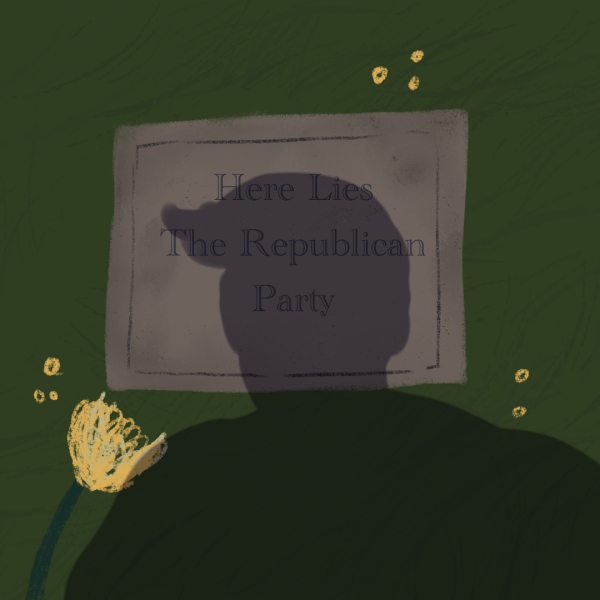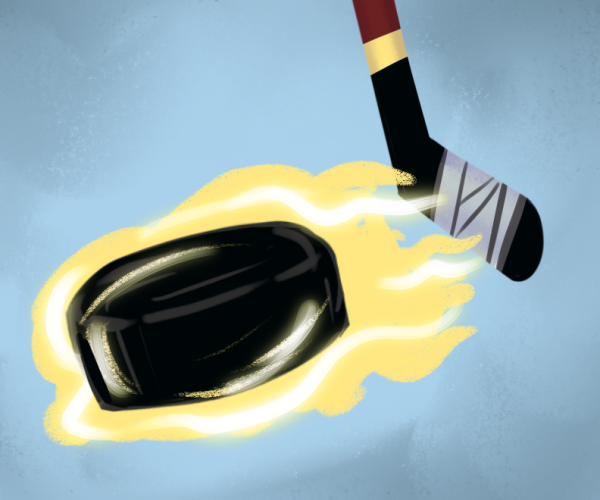I don’t believe in global warming
February 10, 2010
Ever since Al Gore’s triumphant PowerPoint presentation, “An Inconvenient Truth,” hit the screen, it seems like global warming has been at the tip of every tongue as the principle reason we should start going green. To award some credit, I think it’s a good excuse. What better way to get a massive population to clean up after themselves than by advocating that not doing so will bring forth the apocalypse?
Global warming has become commonly known as an every day threat. It’s the big monster in the closet these days. It’s in textbooks. It’s on the news. It’s even being sold to us.
Attaching the “green” label to any product is the quick way to attract a niche group of uber-environmental yuppie consumers. In the last decade, global warming has gone from an interesting theory to an undisputed fact. And I think it’s a scam.
Understand that by “global warming,” what I really mean is anthropogenic (man-made) climate change. It’s quite hard to dispute that weather on Earth hasn’t changed over time.
Glaciers are definitely melting while lakes and rivers are drying up. But is this enough evidence to prove that humans are to blame?
Ending in the late 17th century was a period called the Little Ice Age, bringing colder winters to parts of Europe and North America. The entire Norse colony in Greenland vanished in this time while the population of Iceland dropped by half. Before that, a warmer period called the Medieval Warm Period occurred, with temperatures on average about as warm as they are recorded today.
Simply put, the climate changes – and it will always change. Only this time, it’s turned into an ideological agenda disguised as scientific theory by scientists who want to receive federal research grants. After all, you don’t receive much funding for finding out that nothing’s really wrong. Furthermore, man-made global warming has been sensationalized by the mainstream media, which is always in need of a new, hot story to hype.
Global warming is supposed to be almost universally accepted by the scientific community as a viable theory; however, it seems that each day these scientists are losing credibility.
The Intergovernmental Panel on Climate Change, for example, has recently been retracting claims. The Himalayan glaciers will apparently not melt by 2035, and now, according to the IPCC, rainfall in North Africa will not fall 50% by 2020 anymore. Still, many claims that they do keep are backed with practically no fact.
Measurements in experiments can even be wrong or manipulated. Calculations of increasing temperatures over the course of hundreds of years, before thermometers, must be based on the assumption that we can interpret precise temperatures based on tree rings and ice core samples. Given these conditions, when measuring a fluctuation of .1 degree Celsius, I would imagine that the margin of error is pretty high.
When line graphs are finally established to present some results, the possibility for bias is astounding. After all, these scientists are trying to prove an emergency that they’ve tricked themselves into believing. Whether they know it or not, their funding will most likely be cut off once they start telling government officials that these changing weather patterns are actually quite normal.
Many visually stunning examples of global warming point to disappearing glaciers and less snowfall in certain regions. Interestingly enough, in some, but not all cases, this actually is a man-made issue, but not a result from driving SUVs and burning coal. These disappearing glaciers can be directly attributed to deforestation at lower altitudes farther down the mountain. In the other cases, I would argue that glaciers always melt, and they’ve been doing it for about 20,000 years.
Last semester, I wrote a column pretty much saying that efforts to keep our current system of economics are in direct competition with the natural working order of the planet.
But this column has nothing to do with trees and smokestacks. This one is about exploiting natural, reoccurring weather patterns and selling them to people who are too gullible to bother doing any research for themselves.
Make no mistake; while humans may not be the culprits for global warming, this is still no excuse for us to forget about renewable energy sources and lessening our impact on the globe. I’m continuing to advocate a conservationist standpoint, but I also really want people to shut up about global warming and focus on problems we can actually fix.
Garrison Ebie is a senior
electronic media major and
columnist for the Daily Kent Stater. Contact him at [email protected].
























